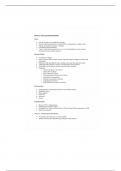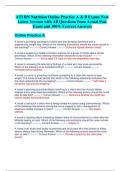Class notes
Fam 1000s : District 9;Genre and National Identity notes
- Institution
- University Of Cape Town (UCT)
This is a comprehensive and detailed note on District 9; Genre and National Identity for Fam 1000S. Quality stuff!! U'll need it!!
[Show more]







